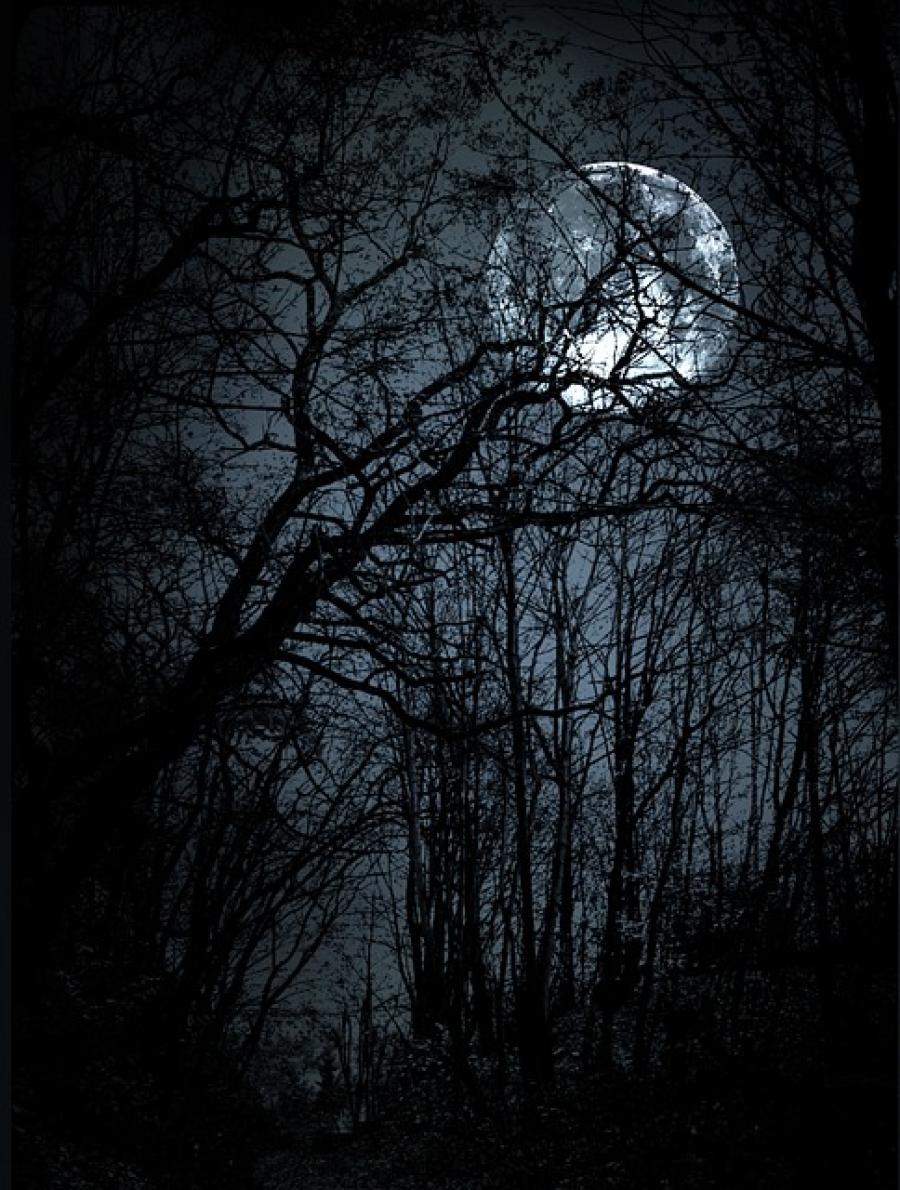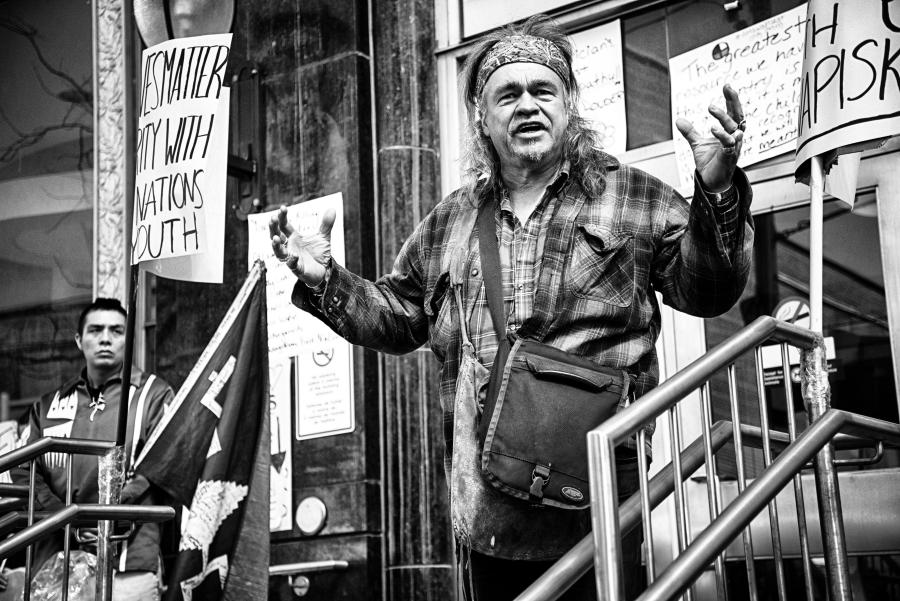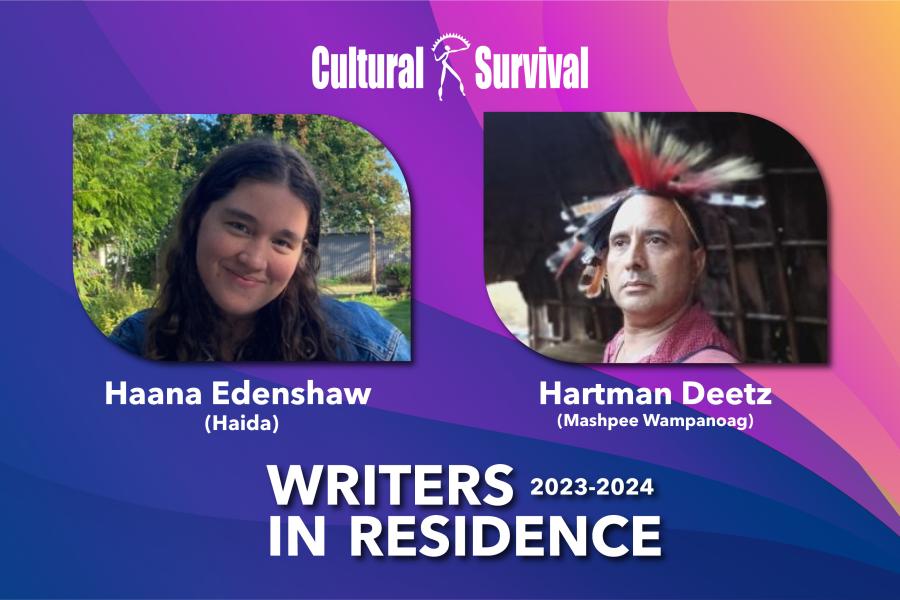CANADA
In the late 1980s, the Alberta government issued 20-year cutting permits, covering no less than a third of the province, to a dozen companies. One lease, to Daishowa, a Japanese pulp and paper company, comprises all the traditional lands of the Lubicon Cree. In addition to clear-cutting, four new pulp and paper mills will use the highly toxic bleached-kraft method. Daishowa started clear-cutting Lubicon land in 1990, ignoring the many attempts of the Lubicon to stop the logging.
CHILE
The araucaria tree - perhaps earth's oldest living tree species - is at the center of Pewenche religion and spiritual and physical sustenance. Since a white cattle rancher claimed legal rights to the Quinquen Valley in southern Child in the early 1900s, the Pewenche have resisted logging. In 1976, Chile gave the araucaria "natural monument" status, which should have led to an end to all logging. Illicit cutting and burning continued, however, due to a loophole: once a section of forest was burned, the dead but often useful remains of the araucaria could be legally logged. A 1987 decree removed all legal protection for the araucaria, and logging is accelerating.
INDIA
In the 1950s and 1960s, Little Andaman Island was used for the resettlement of 2,200 refugee and repatriate families from East Pakistan/Bangladesh, which led to the clearing of thousands of acres of forest. Also, trades were encouraged to extract timber. By 1990, the Onge's natural forest reserves had been reduced to about 15 percent of their original size, causing acute food shortages for the hunter-gatherer tribe. In 1976, the Andaman administration resettled the Onge to the northeastern corner of the island. Outsiders diseases, increasing infant and child mortality, intestinal diseases, and malnutrition have caused a sharp population decline. Even the "Onge Reserve" is threatened by non-Onge settlers.
INDONESIA
In West Papua, exploitation by the Korean firm Intimpura threatens the last remaining Moi rain forest. Earlier logging disrupted the Moi's livelihood, sources of medicine, and access to sacred places. The fish the Moi once caught have disappeared. The Moi have met with Intimpura representatives, the Indonesian forest service, and local government officials, and have undertaken direct action. The company and government officials reject the Moi's claim to their adat (ancestral domain).
INDONESIA
In the 1970s, the Indonesian military, police, and civilian officials used threats, intimidation and force to make the Asmat log their own trees - which are central to their culture - for logging companies. The pay was well below the minimal government-set wage, and no compensation was provided for the loss of trees. The cost of tools supplied to villagers was deducted from their wages. People who refuse to work were labeled subversives, and harsh military actions answered protests.
SRI LANKA
The nomadic hunter-gatherer Veddha have been pushed away and barred from ancestral hunting grounds and forests by officials serving illegal logging interests and commercial hunters. Several years ago, many Veddha were talked into accepting relocation in two large colonies in the Nahaweli hydroelectric and irrigation project, but part of the community now plans to return to the forest to try to sustain a traditional livelihood. There are concerns about starvation if the government doesn't allow them to hunt and gather food in their former domain.
THAILAND
Karen have become illegal squatters in forestry reserves created for logging. They are denied access to the forest and its products and sometimes removed with force. Traditional cultivation of swidden plots has become impossible. A road network built in the 1960s opened the highlands to Thai and foreign mining and logging companies, leading to watershed pollution and soil erosion. The Karen's economic deterioration threatens to extinguish them as a people. Poverty and malnutrition are forcing young Karen into low-paying jobs and prostituion.
Sources include:
Aboriginal Rights Coalition, "Amazon North: The Assault on Aboriginal Lands in Canada;" Cultural Survival Canada Fact Sheet, "Alberta," 1992.
Elaine Brière and Susan Gage, "The Indonesia Kit," East Timor Action Network, 1991; see "Southeast Asia" in the Global Rights Summary in State of the Peoples.
Julian Burger, Report from the Frontier: The State of the World's Indigenous People, Zed Books, 1987.
Article copyright Cultural Survival, Inc.



